 REMARKS OF AMBASSADOR NICHOLAS F. TAUBMAN
REMARKS OF AMBASSADOR NICHOLAS F. TAUBMANON THE OCCASION OF A BUSINESS BRIEFING IN ATLANTA DURING US-Romanian ambassadorial road show
Atlanta, Georgia, USA, February 7, 2008
Good Morning. I am delighted to be here this morning, along with Ambassador Adrian Vierita and the rest of our delegation, to share with you my experience as the U.S. Ambassador to one of the most dynamic and fascinating markets in Europe, a country that has become the hottest market for Foreign Direct Investment throughout the entire region.
[…]
Romania is often referred to as "the best kept secret in Europe" and now - the European Union. I trust that after our brief remarks this afternoon, you’ll understand why, as the U.S. Ambassador and the founder and former CEO of what is now a Fortune 500 company, I would urge you to carefully consider Romania as your next market, if you are not there already.
I’ve played witness to tremendous changes in Romania in my time as Ambassador. Romania has emerged from the long, dark night of communism and has made incredible progress in the last few years. One can sense the casting off of the old ways and a rediscovery of latent possibilities.
Romania's recent achievements are impressive. They include NATO membership in 2004, EU membership in 2007, and eight years of solid economic growth that have refashioned the country into a modern democracy and a market economy.
Romania is a country of enormous promise and potential with a marketplace of 22 million consumers. It is rich in agricultural lands, energy and mineral resources, and human capital, with a well-educated and productive labor force. I’ve been impressed by the creative, entrepreneurial spirit of the people. Their talent, skill, and ambition are already turning Romania into a key player in the region and beyond.
Romanians can be found in the boardrooms of major corporations from Silicon Valley to Wall Street, as well as at the helm of operations in Romania. The country's human talent has allowed major multinationals to move quickly to reliance on domestic managers, rather than expensive foreign staff. Romanians are known for having both outstanding engineering and language skills. People are beginning to talk about the so-called "Return to Romania," which is a very encouraging sign. I’ve heard plenty of stories about some of Romania’s brightest, including many who left under very trying circumstances, returning home to establish companies and capitalize on their Western know-how, some after more than two decades. A well-known American executive recruiting firm tells me they’ve been quite successful at placing Romanian-born executives in positions back in their home country.
One of the Romania’s great success stories can be found in the Information Technology sector. Not only is it recognized as one of the strongest in the region, boasting 85 percent American products and continuing to attract high-levels of investment; Romania’s own innovations have become globally recognized products. The legislation governing the sector has served to encourage investors and helped stem the so-called "brain drain" experienced in other sectors. I recently read that the Economist Intelligence Unit ranks Romania ahead of India, Russia, and China in terms of IT sector competitiveness.
On the occasion of the inauguration of Microsoft’s Global Technology Support Center in Bucharest a year ago, I asked Bill Gates "why Romania?" His response was simple - great geographic location, great engineers, and great foreign language speakers. They say that after English, one of the languages heard most often at Microsoft’s Seattle headquarters is Romanian, spoken by the 300 plus Romanians employed there. Bill Gates knows a thing or two about the war for talent…
But Microsoft is not alone. Leading U.S. and European companies have moved eagerly into the Romanian market. Airline connections throughout Europe and beyond are proliferating. In fact, Georgia’s own Delta Airlines made it that much easier to bridge the Atlantic last June when they inaugurated their direct flight to JFK. It's amazing to think that Foreign Direct Investment in Romania from the U.S. and Europe is up over 600% since 2000!
In a few short weeks, Bucharest will be in the world spotlight as dozens of foreign leaders, including President George Bush, converge there for the NATO Summit. For this, the people and leaders of Romania have good reason to be proud.
What can you expect to find upon arrival to Bucharest? A city bustling with activity, framed by construction cranes and anchored by bumper to bumper traffic, serving as testimony to the city’s exponential growth. In fact, Romania now ranks first in the EU in construction works - boasting an annual growth rate of 33 percent. You could make a case that the construction crane should be the new "national bird" of Romania.
But the explosive growth is not limited to the capital city. The fact that the investment locations are decentralized is one of the attributes that makes Romania so attractive. Constanta, known as the "eastern gateway of Europe" is home to the second largest port in Europe in terms of capacity, and still has potential to grow; Iasi, Timisoara and Cluj are recognized as industrial and IT hot spots, experiencing some of the fastest growth rates in the country. Ploiesti and Craivoa are becoming automotive hubs, with Ford Motor Company slated to open its largest new plant in 36 years in Craiova.
Cluj is attracting plenty of investment and media interest. You may have noticed the hoopla surrounding Nokia’s new mobile-phone plant. I saw first hand what the excitement was about when I visited Cluj last November to check on the progress of the Transylvania Motorway, a 3.2 billion dollar project that will nearly triple the amount of motorway in Romania. The four-lane road, the biggest project in Europe, will cut travel time to Hungary in half, making it much easier to get your products to the major European markets. And you know the road will be quality, because Bechtel is building it. This road is drawing investment to the region already, and it's not even done. St. Louis-based Emerson is set to join Nokia with a new Cluj plant in the near future. The list goes on and on, and so could I, but I won’t as I want to leave time for your questions.
I’ll end with this. The more I travel the globe, the more I come to realize that we need to start focusing on our similarities as people rather than our differences. In the case of Romania that is a pretty simple task as our two countries and peoples have much in common. In fact, Ambassador Vierita even shares a birthday with the United States! He is in for quite a surprise when he celebrates his first birthday party this 4th of July in our nation’s capital. From my own experience, I have found Romanians to be warm, open and friendly. Romanians are hard workers and we both believe in working hard to make our lives better. I believe that the time to build on success is while you're successful. For Romania, that time is now. It should be for you as well. Thank you.

































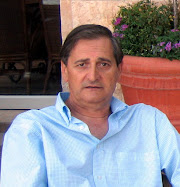
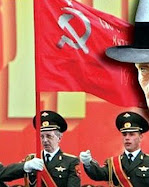




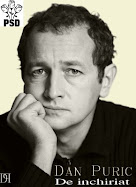





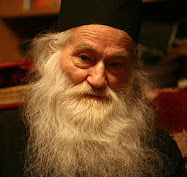


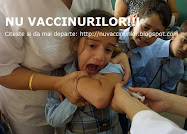



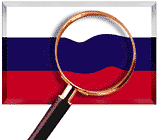
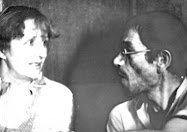



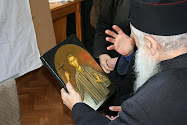
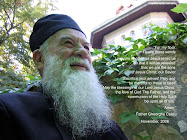

No comments:
Post a Comment